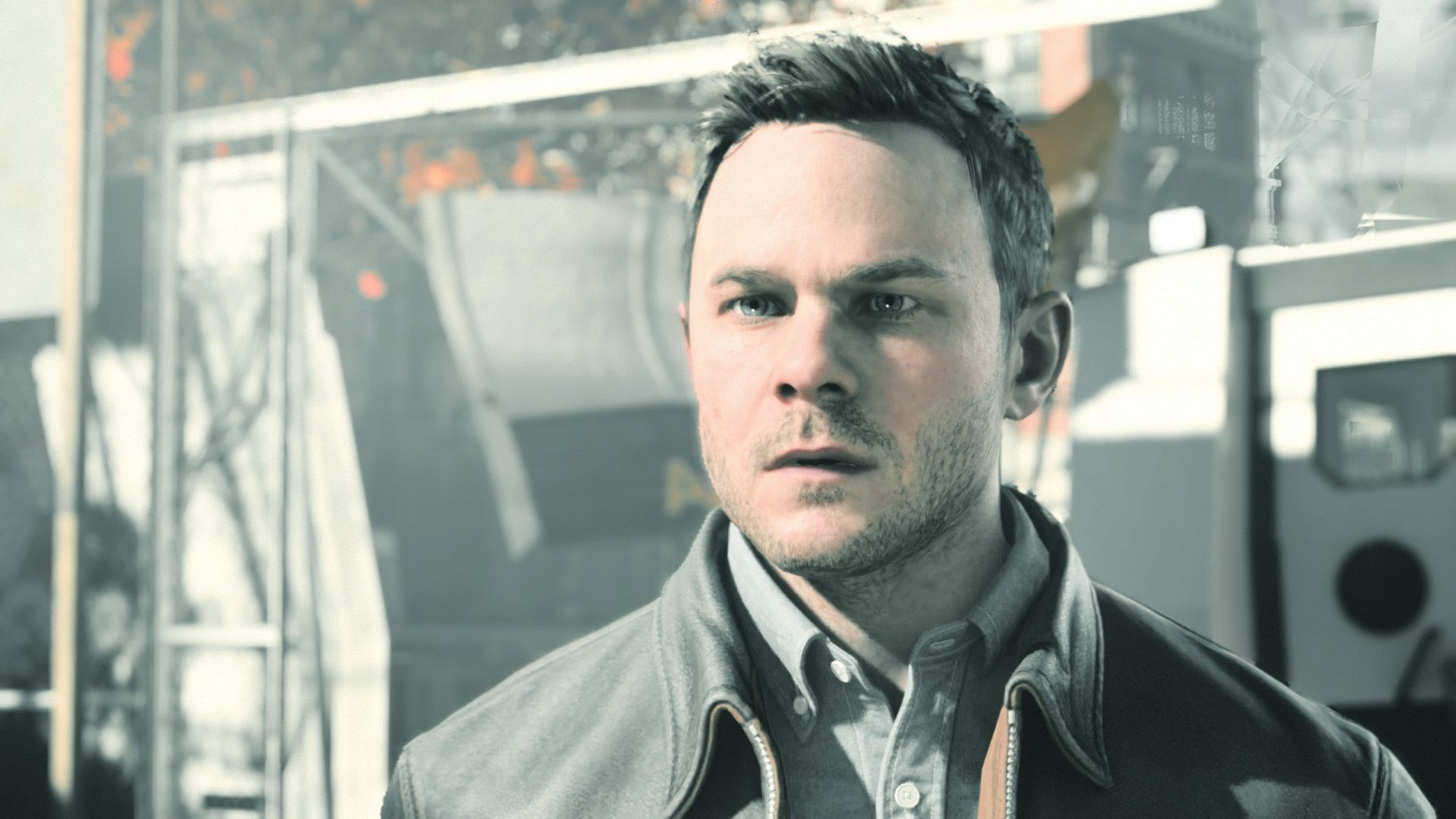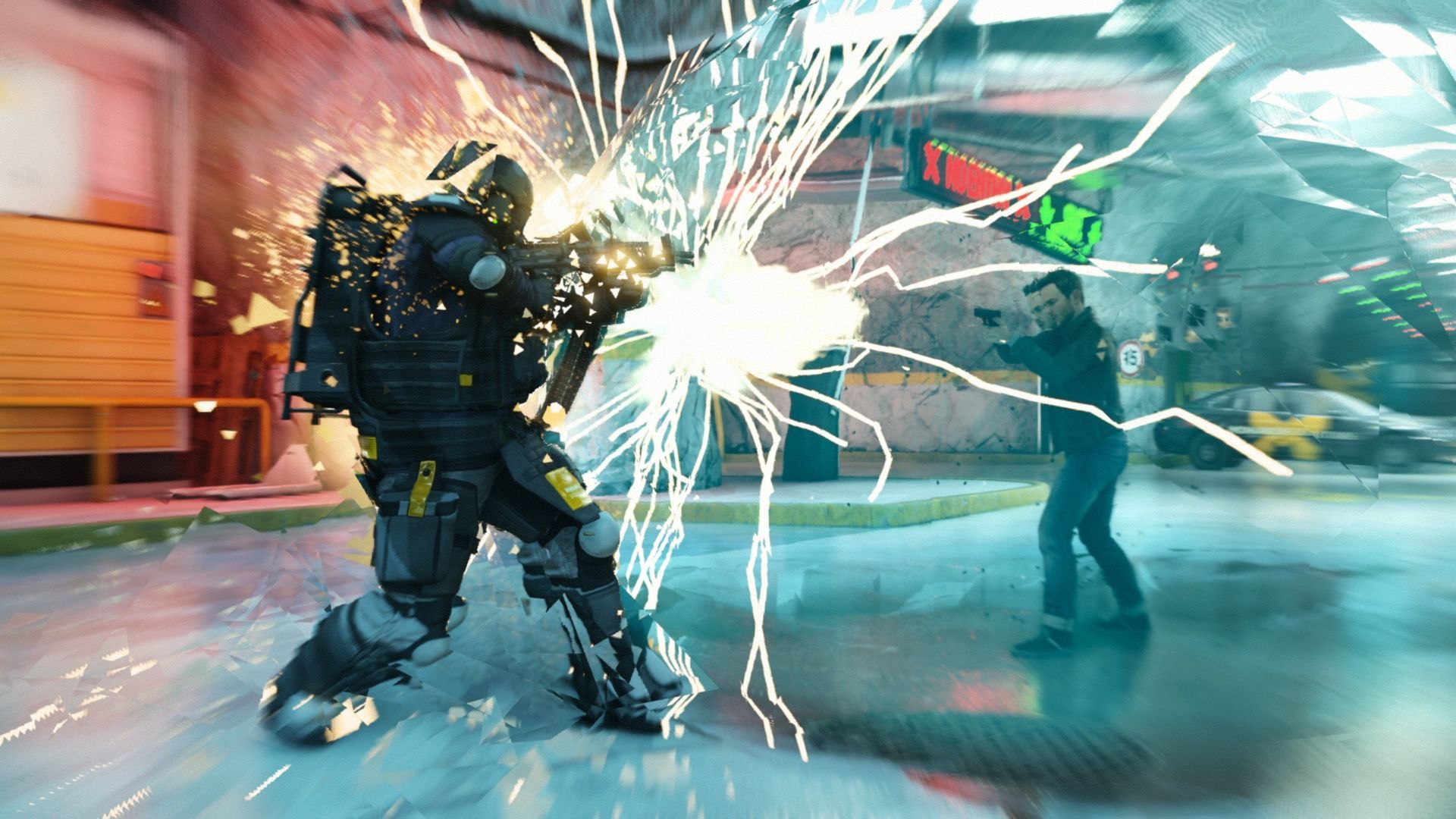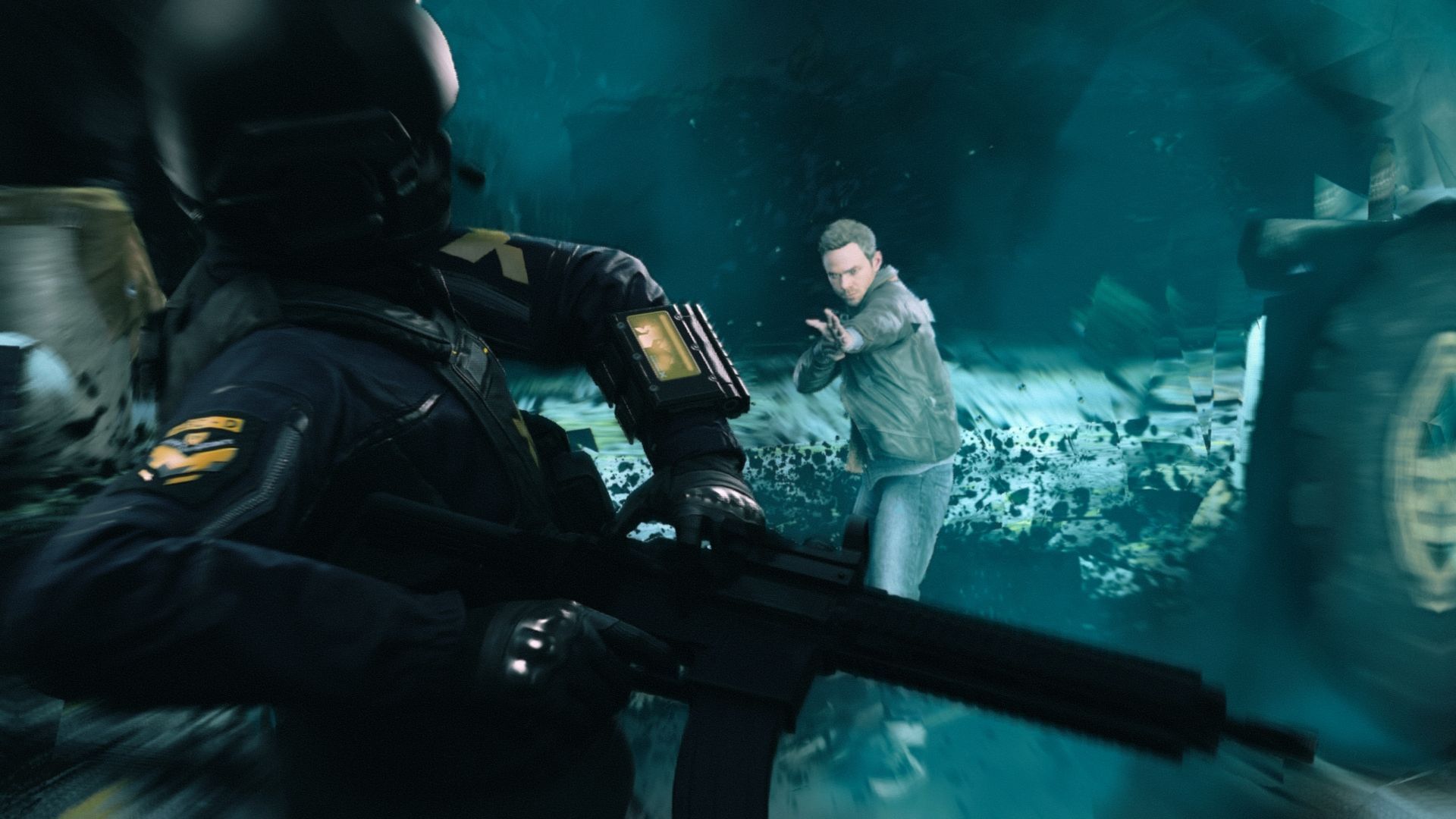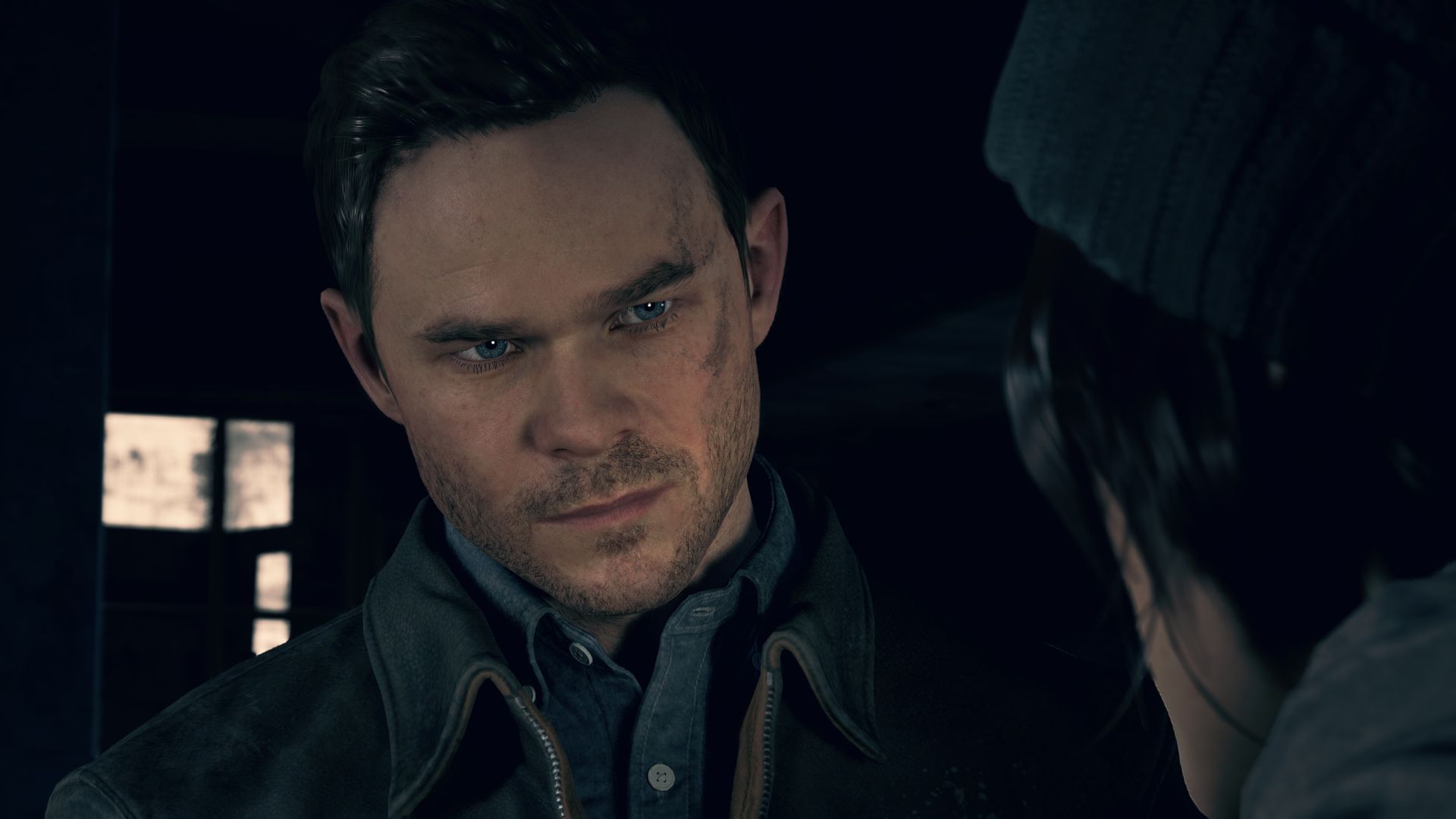Quantum Break is speeding towards its massively anticipated release for Xbox One and Windows 10th on April 5th, and to learn more about the game, I talked with Remedy Entertainment Head of PR Thomas Puha at Microsoft's Xbox Spring Showcase in Los Angeles.
Thomas talked about the game, the live action show, how everything started, and even gave some information on what kind of ending we can expect, of course without dropping spoilers.
Steven Santana: So, just to lay the groundwork for anybody who somehow doesn't know what Quantum Break is, give me the elevator pitch of what Quantum Break is…
Thomas Puha: Oh a lot of pressure, (laughter) so well Quantum Break is Remedy's latest game. It’s a story driven third person cinematic action game that includes a live action show, and you as the player actually gets to shape what happens in the game. It’s pretty unique.
Steven: There are some concerns that the live action episode will kind of break up the pacing of like gameplay, since they are quite long. Do you think Remedy has addressed that? Was it ever a concern internally?
Thomas: Yes, I mean pacing obviously is always a concern, but you want to try to do something different, something new. And what we wanted to do was live action. We dabbled in live action in Alan Wake obviously, as you know, and even in Max Payne a little bit.
Like we said, the game is about the heroes and the show is about the villains. So the show really is about Paul Serene, the big bad, and the game focuses more on Jack Joyce's story. I think when people play it, they'll get the flow, and they'll watch live action. At least, that’s been my experience now that I’ve watched people play it. They get to the junction where you make a choice, and then you get to watch the live action.
I’ve played games for 30 years, and you know I’ve played through every Metal Gear, and I’ve never really had a problem with the cut scenes being really long. It’s important to understand that the live action episodes in Quantum are not cut scenes. It’s like the whole sort of TV episode right there, and there’s four in the game.
Now, if you want to keep playing, you can skip the episode. It's not locked and you can just keep playing, and the story will make sense. But it’s been always designed from the ground up as a cohesive experience, where you should play the game and then watch the live action.
Hopefully people will give it a try, instead of going "oh that’s dumb, I’m not going to try." Just go ahead and try, and you can always just skip the episode and then just play the game. I think when people play, they'll realize "wow I actually get to see what Paul Serene does, what Monarch is up to, and it’s a really high production value live action show. I’ll give this a try." Hopefully that’s what will be the reaction.
Steven: So was doing a live action episodic just a natural evolution from Alan Wake? In Alan Wake you had the FMV live action TV shows with the Twilight Zone-inspired thing, and with the episodic nature of Alan Wake, where it was broken up into these episodes, and they had credits at the end. It just seems that for Remedy, the natural evolution of that would be to finally actually do a live action TV show.
Thomas: Well you answered your own question perfectly. That's exactly it, it seems like as our creative director Sam Lake has been at it for 20 years at Remedy, and this is natural progression. Like you said we had Night Springs with Alan Wake and the opportunity came up that we could do live action, and Microsoft was crazy enough to be like" yeah you guys should do it, we'll fund it." And we're like "okay let’s do it."
And it's been incredibly tough, because the plan has always been that the game has to impact the live action. They have to sort of interact. That’s the goal, instead of the live action being a separate completely separate thing. That’s not the case.
What you do in the game impacts the live action. It’s a natural progression. It’s just another way of conveying the story. At the end of the day we make video games. We never forget that at Remedy, we make games, and gameplay is king. But the live action is an interesting way of doing things, and now that we can have and achieve really good real time graphics, we can really portray the actors that we've hired - they are all awesome actors - And we can bring all of the nuance of their acting into the actual game. Their digital replicas are insanely good.
They got the movement of the eyes, the wrinkles. Everything iss very, very believable. So it’s not as jarring as people might think, that you go from live action to the game ,and I think it works really well. But yeah, I think its natural progression for Remedy.
Steven: So I have to ask, just because I love Alan Wake. If Quantum Break becomes successful, commercially and critically, what are the chances of doing an Alan Wake 2, or a sequel to Quantum Break, or a maybe another new IP just like Quantum Break?
Thomas: Yeah. It’s awesome to work on a new IP. Like in the case Quantum Break, you don’t often get to do that, but its super tough. It takes years just to figure out the story, the characters, the universe. We also love to do sequels. We made it very clear that we’d love to make more Alan Wake, but there’s obvious business realties. You need a publisher to fund it and all that, so we are hoping to make that happen.
But you are only as good as your last game, so we are just making sure that Quantum Break will be as good as it can be, and then the consumers, the fans, and the audience will decide what happens. Hopefully they will like the game. Hopefully it will do well for us and Microsoft, and we’ll take it from there.
Steven: I was watching some old reveal gameplay. On the original UI there was a meter that all the time abilities pulled from, while now each ability has its own count-down timer. What was the reason for that shifft?
Thomas: I think it was changed eighteen months ago. It's like any creative endeavor, whether it be an album, or movie, or game, things change during production. It always amazes me a little bit. When you announce a game a year before it comes out, that people think that at that point the developer knows exactly what that game is.
No, we don’t. We have the premise, the concept, and the ideas in place. And then we start, and we develop things, and we spent a long time in pre-production on Quantum Break to figure things out. The time travel story was very difficult to pull off. The logistics of the live action was nightmarishly complicated to do, because you as the player impact it, so that was difficult to pull off.
It just takes a very, very long time to sort of pull it all together, so during the production we tried very different things, we had very different time powers early on. And then we realized, well this game is not fun with this power, so we went back to the drawing board and we redid the powers. So now they are the final ones you can see in the game, and with that the way you use the powers changed.
So now each power does have a cooldown instead of one unified power thing that you draw from. It’s just that you play the game every day at the office, and you try different things, and see what works best for the experience. It’s interesting how people get very attached. You show something of the game and then they’re like "why did they change that? Is it in trouble?" No. Its just the nature of it. You play it, you change it until it’s as good as it can be.
Steven: How substantial are the changes to the game going to be, depending on the decisions you make as the antagonist at the junction points where you play as Paul and you are making the decision betwen Hard Line and PR?
Thomas: So you have four junctions in the game, and each has two choices, and there are five acts in the game. We have always been very clear about the way we talked about this, the way you shape the story. It’s not your sort of choose your own adventure, it’s not something like Until Dawn that has like eight characters and crazy amount of things you can change, we’re not like that.
There is one ending in Quantum Break, but the way you get there can be very, very different. So there’s drastic things that happen, characters can die or live, but a lot of it is subtle. Like even how Monarch reacts to you as the player, changes depending on what you choose to do.
Even the radio shows change to reflect what you have done, the emails you can find reflect what you have chosen to do, how does monarch and people talk about you.
There’s a lot of subtle things that I think are very Remedy. If you really spend a lot of time going through all of the narrative elements of the show and storytelling in the game, you’ll be surprised. Like "holy crap, they’ve put a lot of story into this game." And everything is impacted by your choice, but like I said, there’s one ending. But depending on what you choose your path to the ending can be very, very different.
Steven: Was the TV Show something that Remedy originally wanted to do? At the beginning the Xbox one had that heavy TV push. Was it suggested by Remedy or by Microsoft?
Thomas: So, originally what happened was that we pitched Alan Wake 2 and that had a live action component. And Microsoft was like," this is not the right game now," but they were focused on live action, and they were interested in that aspect.
And then they knew that Sam had an idea for a game called Quantum. We were like "okay we could do some live action in Quantum," and they were like "no, no, go all out. do what you want." We said "okay, then lets run with it." And that’s what happened.
But I mean, like you said earlier, most Remedy games... Well maybe not Death Rally back in the day... but Alan Wake and Max Payne did have live action, so this is just natural progression.
But it’s been super complicated: The logistics of it... Making sure everything matches in the game and in the live action has been very crazy. But the thing is that the live action has been done by L.A.'s best production company called LifeBoat. They’ve been part of Quantum Break since day one, so it's never been Microsoft Entertainment Studios, or whatever that was that they shut down. It's always been Life Boat. So we have never really been impacted by Microsoft's policy changes.
Steven: Alan Wake kind of didn’t have a conclusive ending. It kind of left on a little bit of a cliffhanger. Will Quantum Break avoid that, or will it kind of tease that there’s more to it?
Thomas: So do you want me to tell how Quantum Break ends?
Steven: No I don’t want to spoil it, but Alan Wake just kind of ends, but there’s no… conclusion. The conflict is still kind of there.
Thomas: Yeah totally, I was frustrated by that when I played through it.
Steven: Yeah, I’m curious if Quantum Break is going to have a hard stop, or if you guys will leave it open and add onto it later.
Thomas: Right, taking off my Remedy hat and speaking as person who has played games for thirty years, I hate it when a game's ending is not conclusive. I hate it when it is too open ended. But there are so many schools of thought. some people like vague and open endings, where they can have their own interpretation. Me, personally, I like when it’s very explicit. Now, as I’ve already said, Quantum Break will have one ending, but the way you get there is very, very different.
It will have a conclusive ending, but obviously, we leave things that we know that if we get to make a sequel can expand upon. But it’s not like a cliffhanger. It's a very definite ending.
Sam’s been talking about this a lot: When he made the first Max Payne, everybody was young, they didn’t think about anything. They basically killed off everybody in Max Payne, and then they had to make to make a sequel. And they were like"U gh, what do we do?"
But Alan Wake was a very different game, a thriller mystery type of game, so it makes sense. Quantum Break is more of a blockbuster kind of modern-day thriller, so it has a definite ending, but obviously, since we are all about storytelling at Remedy, lots of different strangd in the background when you get through the game and you can go "wait a minute... that thing... umh..." So there are definitly hooks in there, but I’m sure people will be happy with how the game ends. Absolutely.




